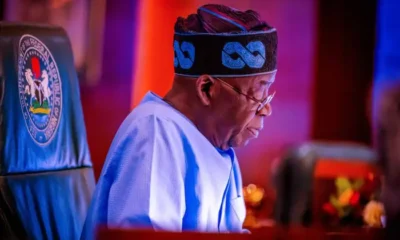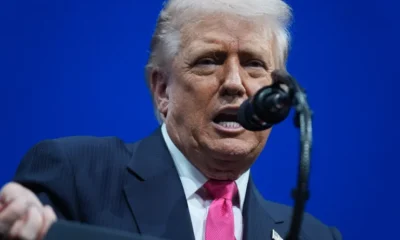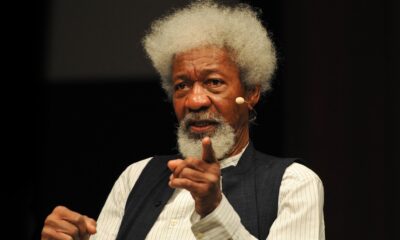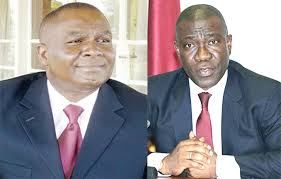Breaking News
US Threatens Military Action Over Killings of Christians in Nigeria
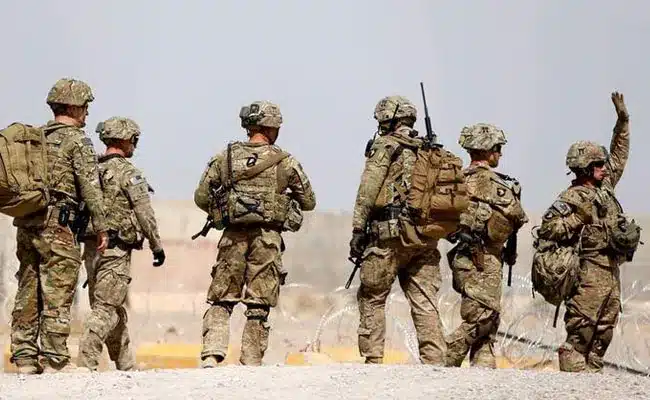
The United States President, Donald Trump, and his Defence Secretary, Pete Hegseth, have issued blunt warnings that Washington is prepared to use military force over what they described as the killing of Christians in Nigeria — a move that has provoked alarm in diplomatic and policy circles.
In a post on his Truth Social account, Mr Trump said the U.S. would immediately stop all aid and assistance to Nigeria if the federal government failed to halt the alleged killings. He added that he had directed the Pentagon — referred to in his post as the “Department of War” — to prepare plans for possible strikes, warning that any action would be “fast, vicious and sweet.”
Following Mr Trump’s post, Defence Secretary Pete Hegseth echoed the threat on X, writing that “The Department of War is preparing for action” and warning: “Either the Nigerian Government protects Christians, or we will kill the Islamic Terrorists who are committing these horrible atrocities.” The terse exchange has sharply raised tensions between Washington and Abuja.
U.S. officials framed their messaging around protection of religious minorities and allegations that Islamist militants are targeting Christians. The White House move also included adding Nigeria to a U.S. watch list for violations of religious freedom.
The Nigerian Presidency swiftly rejected what it called a mischaracterisation of the situation. President Bola Tinubu’s office and foreign ministry officials said Nigeria protects citizens of all faiths and that the security challenges the country faces are complex and multi-dimensional, involving banditry, insurgency and communal conflicts that affect both Christians and Muslims. Abuja has also sought urgent diplomatic engagement with Washington to clarify the facts and prevent escalation.
Analysts and human-rights have cautioned that while attacks on civilians must be investigated and perpetrators held to account, Washington’s public threat of military force risks complicating counterterrorism cooperation, inflaming regional tensions, and undermining diplomatic channels. Several international outlets described the U.S. statements as a sharp escalation that could strain relations and unsettle Nigerians already coping with insecurity.
Experts note two practical and political problems with the rhetoric: first, the attribution of violence in many parts of Nigeria is contested — perpetrators range from Islamist extremist groups to local bandits and communal militias — and victims belong to different faiths and communities; second, military action on Nigerian soil without clear multilateral backing or an invitation from Abuja would present serious legal and operational challenges.
Mr Trump wrote: “If the Nigerian Government continues to allow the killing of Christians, the U.S.A. will immediately stop all aid and assistance to Nigeria, and may very well go into that now disgraced country, ‘guns-a-blazing,’ to completely wipe out the Islamic terrorists who are committing these horrible atrocities.”
Defence Secretary Pete Hegseth added on X: “The killing of innocent Christians in Nigeria — and anywhere — must end immediately. The Department of War is preparing for action.”
Premium Times Nigeria
Abuja, in response, insisted religious freedom is constitutionally protected and warned against simplistic portrayals of Nigeria’s security problems that could damage cooperation against violent groups. Officials also signalled plans for direct discussions with the U.S. to clear the air.
The language of possible unilateral military strikes by a major power risks several unintended consequences: it could harden nationalist sentiment in Nigeria, complicate intelligence-sharing with Western partners, and distract from the urgent need to strengthen local security, justice and conflict-resolution mechanisms.
It may also fuel extremism by provoking narratives of foreign interference. Diplomats say quiet, evidence-based engagement and joint investigations are more likely to lead to prosecutions and protection than public threats.

